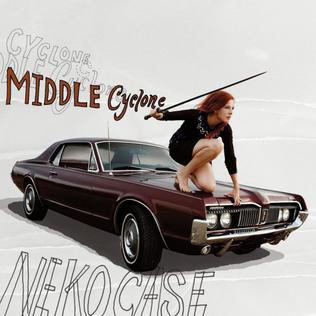Supergrass
is a band whose name is familiar to us, isn't? and we may have even heard some songs from
them haven't we? I believe..But is it worthwhile listening the whole record from them? Yes, it is! I have
done it few months ago and today I have done it again over and over again!They are
worth it! Life on other planets. Of course I believe there is life on other
planets, someone from out space is waiting for our signals and we are waiting
for their contact..It would be a joke if we receive extraterrestrial signal that sounds
like a Supergrass song..it would be crazy!
But no band can make amazing music all of the time. Sometimes you need something extra to fall back on - interesting lyrics, controversial views, a charismatic frontman, black suits with white ties and shoes... Devoid of any of these things, Gaz Coombes, Danny Goffey and Mick Quinn, tread a fine line. The only thing we have to judge them on is their music - they offer us precious little else. If the tunes aren’t there, Supergrass may as well not be either.
Too many tracks on the band’s third album didn’t work. ‘Supergrass’ sounded like a collection of half-baked ideas, only a handful of which displayed the confidence and verve present on ‘I Should Coco’ and "In it for the money". Inconsistency is still a problem on ‘Life On Other Planets’, but this time there are thankfully more good things than bad.
The negatives first, then; ‘Evening Of The Day’ is the sort of sub-standard album filler that Supergrass should really have got out of their system by now. It is an annoying, lightweight, novelty song with a false ending, daft harmonies and comedy whistling. Stuck slap bang in the middle of the record, it does nothing except destroy the momentum gained by the opening five tracks.
The decision to recruit Tony Hoffer as producer for this record is an interesting one. Hoffer’s previous credits include work for artists such as Air and Beck, and it is clear he has gently attempted to bring a more experimental approach to this band’s notoriously traditionalist recording methods.
On ‘LA Song’ you wonder if it was worth him bothering. The track itself is not really up to much anyway - again it comes over like a badly thought out pastiche, Supergrass forcing their ‘wacky’ side upon us once too often. Add to this a load of unnecessary synthesiser effects that feel like after-thoughts, throw in some rubbish Buggles/Daft Punk-style solo parts, and it’s a proper old mess.
Closing track ‘Run’ is the only other song where you suspect Hoffer was really calling the shots. A thoughtful electro-acoustic piece, it sounds like Supergrass trying to sound like Air, and discovering, surprisingly, that it rather suits them.
Elsewhere, ‘Life On Other Planets’ is mostly conventional Supergrass. The singles ‘Grace’ and ‘Never Done Nothing Like That Before’, whilst being great on their own, fit snugly into the rest of the album, and listening to the latter is like hearing the teenage indie of ‘I Should Coco’ all over again, now fully grown up, more muscular and with hairs on its chest.
Supergrass - Grace
Sandwiched in-between the glam-rock of ‘Za’ and ‘Seen The Light’, ‘Rush Hour Soul’ is a psychedelic blast of Stones-like guitar riffs, but ‘Can’t Get Up’ and ‘Funniest Thing’ are the album’s standout tracks. Both have strong, classic tunes, fantastic arrangements, and are exactly what you’d expect from a band who don’t need to graft on special effects to create special music.
And Supergrass can be special, but they can also be infuriatingly irritating. ‘Life On Other Planets’ sees them journey to both extremes – which one they will ultimately be remembered for is anyone's guess.
by Jonathan Rawcliffe









